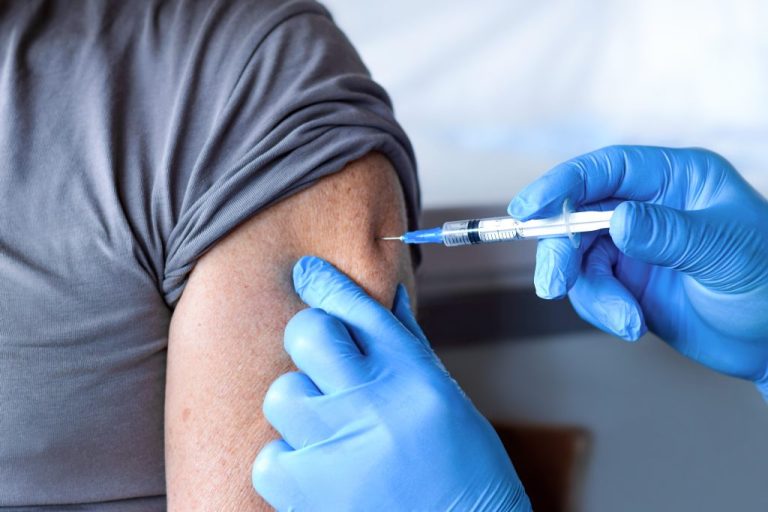The world’s first routine vaccination for gonorrhoea is being rolled out in England.
NHS England announced earlier this week that invitations for the immunisation programme will go out to eligible patients from 1 August 2025.
“Gonorrhoea diagnoses are at their highest since records began and this has the potential to help us to turn that around”
Matt Phillips
The jab, an existing vaccine for meningococcal B disease (4CMenB), was greenlit for routine use by the government after analysis from the UK Health Security Agency (UKHSA) found it also gave protection from gonorrhoea, and could help tackle antibiotic resistant strains of it.
Following this research, the Joint Committee on Vaccination and Immunisation (JVCI) advised that the health service should roll out the vaccination programme to tackle gonorrhoea.
In 2023, there were 85,000 cases of the disease in England – a rate three times higher than in 2012.
Further research from Imperial College London suggested the vaccine could prevent up to 100,000 cases of gonorrhoea over the next decade, as well as save the NHS £7.9m, if high uptake is achieved.
The vaccine will be administered through local government-run sexual health services.
Gonorrhoea
Like many other sexually transmitted infections (STIs), gonorrhoea is passed on through unprotected sex.
Symptoms of the disease typically emerge around two weeks after infection.
These include discharge from sexual organs, burning pain when urinating and pain in the abdomen. In other cases, gonorrhoea may be symptomless.
It is treated with antibiotics, and can symptoms can worsen if left unaddressed.
Professor Matt Phillips, president of the British Association for Sexual Health and HIV, hailed the news as a “landmark moment” for sexual health in England.
He said “A new gonorrhoea vaccination programme — alongside continued rollout of mpox vaccination — forms a vital part of our efforts to address the significant inequalities we are seeing in sexual health outcomes.
“Gonorrhoea diagnoses are at their highest since records began and this has the potential to help us to turn that around.”
In a sent to healthcare providers and local authority leaders, dated 21 May, NHS England outlined that the vaccination programme should target “primarily” gay, bisexual and other men who have sex with men, and who are at highest risk of exposure.
The letter stated that there may be a “small number” of people outside this group who may be offered the vaccines.
People who take the jab will also be offered vaccinations for mpox, Hepatitis A and B and HPV vaccinations when attending their appointment, according to NHS England.
Dr Amanada Doyle, NHS England national director for primary care and community services, said in a statement that the new vaccination programme was a “huge step forward” for sexual health in the country.
“Vaccination is so important in helping to keep each other safe, so I would urge anyone eligible to take up the offer later this year when NHS staff start delivering these vaccines,” she said.
Minister for public health and prevention Ashley Dalton, added: “This world-first vaccine programme represents a significant breakthrough for public health, and once again our NHS is leading the way.
“It could not come at a more critical time – after years of neglect of public health services, we inherited gonorrhoea diagnoses at record levels, triple what they were in 2012. By targeting those most at risk, we can reduce transmission rates from this unpleasant disease that is becoming harder to treat and prevent thousands of cases over the next few years.”
Ms Dalton said the new programme would play a “key role” in one of the three key shifts the government is hoping the NHS can make – this being moving from “sickness to prevention”.
Alice Wiseman, vice president of the Association of Directors of Public Health, added: “We welcome the roll out of this groundbreaking vaccination programme which will help to tackle the huge increase in gonorrhoea diagnoses over recent years, which disproportionately affect gay, bisexual and other men who have sex with other men.
“Staff on the ground do an amazing job to provide support in a safe, non-judgemental environment but we need further commitment to provide locally coordinated programmes to prevent infections, reduce the health inequalities in our communities and reverse the increasing numbers of STIs resulting from people going untreated.”
Read more on sexual health

